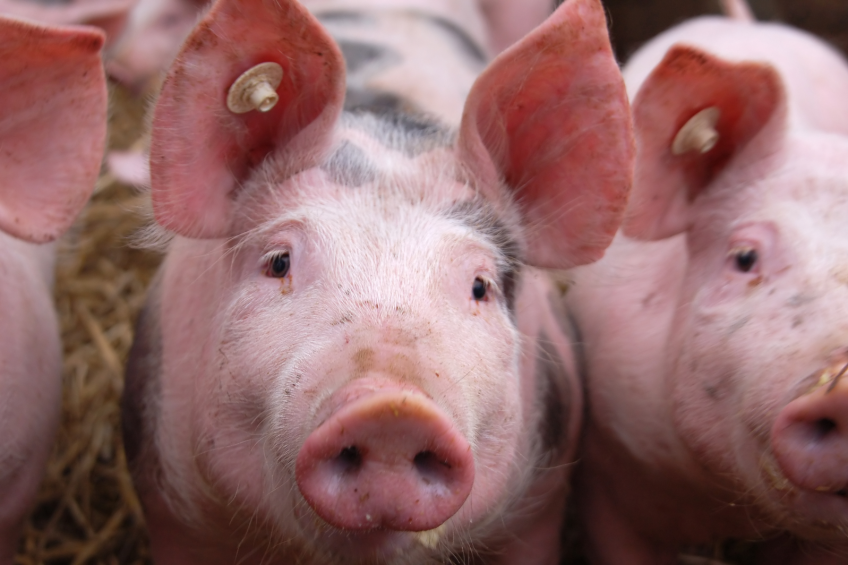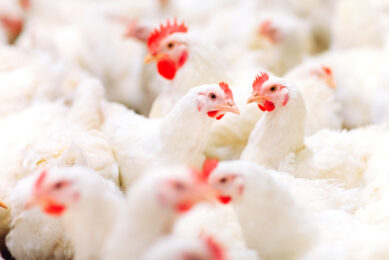More knowledge on calcium for better pig diets

Recent research in the United States has been aimed at better understanding calcium digestibility in pig feeds. This paves the way for being able to better determine how much calcium is needed in the diets.
More knowledge on calcium for better pig diets
Recent research in the United States has been aimed at better understanding calcium digestibility in pig feeds. This paves the way for being able to better determine how much calcium is needed in the diets.
The research was carried out by Hans H. Stein, professor of animal sciences at the University of Illinois.
Calcium in the form of supplements
In general, the majority of the calcium in swine diets is included in the form of supplements because most plant ingredients are low in calcium. Formulating diets based on values for total calcium fails to take into account how well the calcium in the diet is digested and absorbed from the intestinal tract, making it difficult to determine how much calcium is needed.
Stein and his lab conducted an experiment to determine the effect of microbial phytase on the digestibility of calcium in a number of commonly used calcium supplements. In this way, they hoped to gain more data on exactly how much of a given supplement should be included in diets.
No high costs for overfeeding
“Most calcium supplements are inexpensive, so in that sense, the cost of overfeeding isn’t high,” Stein said in a university news update.
“However, excess calcium can interfere with the absorption of more expensive nutrients. A better understanding of calcium metabolism will help producers know how much calcium they need to feed and help them avoid waste.”
Phytate can inhibit calcium digestibility
Phytate is a compound commonly found in plant ingredients that can bind to calcium and inhibit its digestibility. Microbial phytase, an enzyme that breaks down phytate, can be produced using microbes and added to pig diets. This experiment examined the effect of microbial phytase on the digestibility of calcium in a number of commonly used calcium supplements.
The researchers fed growing pigs diets containing monocalcium phosphate (MCP), dicalcium phosphate (DCP), calcium carbonate, calcium derived from the seaweed Lithothamnium calcareum, or a high-calcium sugar beet co-product called Limex. Each ingredient was fed both without and with phytase added to the diet.
Digestbility greatest in diets with MCP
Regardless of whether or not phytase was added to the diets the apparent total tract digestibility (ATTD) and the standardised total tract digestibility (STTD) of calcium was greatest in diets containing monocalcium phosphate.
In diets with no added phytase, the STTD of Ca was:
• 76.68% in the MCP diets;
• 72.68% for DCP;
• 67.40% for Limex;
• 65.36% for L. calcareum calcium; and
• 64.04% for diets containing calcium carbonate.
Phytate in corn was binding to calcium
For most calcium sources, the apparent and standardised total tract digestibility of calcium increased by 2 to 7 percentage points if microbial phytase was added to the diets. “This indicates that phytate in corn was binding to calcium from the supplements,” Stein explained. He added that formulating diets based on standardised total tract digestible calcium will yield the best results.
“You need to know not just the total calcium in the diet, but how much of that calcium is absorbed by the pig. We recommend using STTD calcium values to determine the digestibility because STTD values for calcium in each ingredient are additive in a mixed diet, which means that the digestibility of calcium in the mixed diets can be predicted from the values obtained for each ingredient,” he said.
Funding for research
Funding for the research was provided by AB Vista of Marlborough, UK.
“Effects of microbial phytase on apparent and standardized total tract digestibility of calcium in calcium supplements fed to growing pigs,” was co-authored by Caroline González-Vega of the University of Illinois and Carrie Walk of AB Vista. It was published in a recent edition of the Journal of Animal Science.











